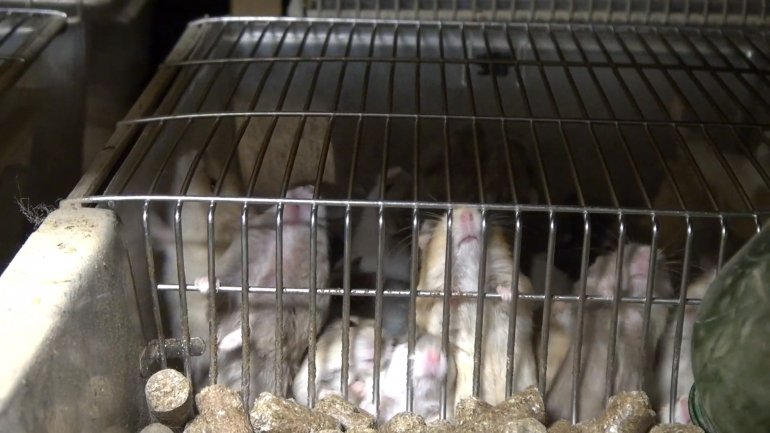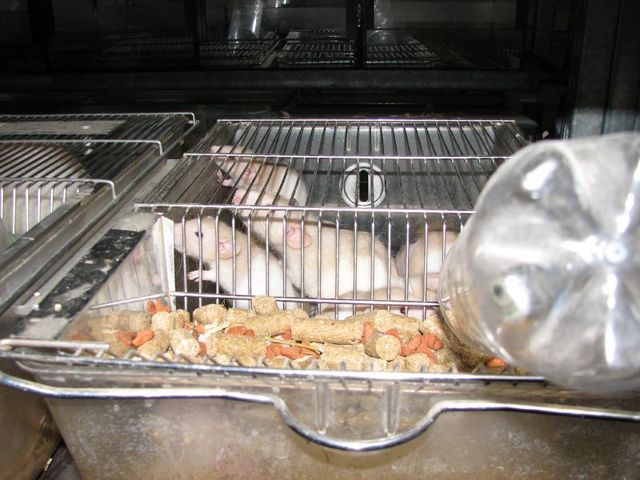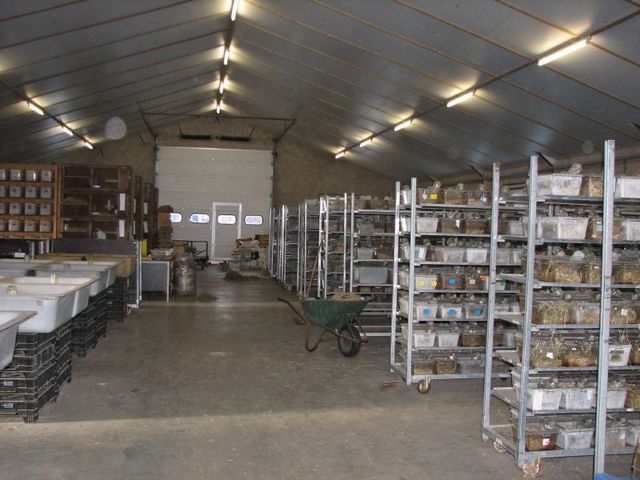Where Do Pet Shops Get Hamsters From?
“When you buy a hamster from a pet store chain you are making more space for another animal to be bred in a Rodent Mill”

Chain Pet Stores Use Rodent Mills
Most Big chain pet stores sadly use something called a Rodent Mill. Rodent Mills are big warehouses that breed hamsters, gerbils, mice, rats and other rodents with very little care. The females will be bread to death, these places will contain the rodents in small, crowded and dirty boxes. The rodents will then start to become stressed due to the small crowded enclosures and this can possibly trigger health conditions alongside the poor breeding and genetics.
PETA went inside a pet mill in Europe. This is the article they wrote about what they found inside:
The Heartbreaking Story of How Animals are Bred for the European Pet Trade


TikTok Video from @nalathehammyy
PETA Investigation Inside a Pet Mill in Europe
Undercover Investigation of a Rodent Mill in America
Rodent Mills are Breaking The Law
Rodent Mills seem to be breaking every part of The Animal Welfare Act and risk facing criminal charges.
The Animal Welfare Act 2006 makes owners and keepers responsible for ensuring that the welfare needs of their animals are met. These include the need:
- for a suitable environment (place to live)
- for a suitable diet
- to exhibit normal behaviour patterns
- to be housed with, or apart from, other animals (if applicable)
- to be protected from pain, injury, suffering and disease
Anyone who does not provide for an animal’s welfare needs may:
- be banned from owning animals
- face an unlimited fine
- be sent to prison for up to 6 months
www.gov.uk/guidance/animal-welfare
Rodent Mills need to be Ethical Breeders
To comply with the Animal Welfare Act Rodent Mills need to operate as ethical breeders:
- Where hamsters are separated into large enclosures when not mating, (To prevent Injury from fighting and have a large personal space)
- The ability to exercise, with wheels provided when babies aren’t around
- Bedding provided for burrowing (a natural behavior)
- Not be over-bred
- Animal Records of Bloodlines to prevent Inbreeding “which reduces the offspring’s genetic variability, their life span and makes them more prone to hereditary diseases”
How ethical breeders operate can be seen here.
The Natural Genetic Variation of Hamsters is being Impacted Worldwide
It is of huge concern that the natural genetic variation of hamsters is being lost through inbreeding at Rodent Mills. In the wild natural selection eliminates health problems, a poorly hamster would likely die leaving only the healthiest hamsters to reproduce and pass on their genetics. In the domesticated environment, without selective breeding health problems that wouldn’t survive in the wild are continuously passed on and creating an ever increasing negative impact to the genetic code of domesticated hamsters.
Brachycephalic Hamsters Found in Pets Stores
Sadly, some of the new baby hamsters may not make it to the pet store. There have been reports of hamsters and animals having conditions such as wet tail, skin conditions, neurological problems, brachycephalic and hydrocephalus. A Brachycephalic / hydrocephalus hamster could have various genetic problems, they can have a short squished-in face and brittle teeth and they would then need a special mushy diet. Some may have water on the brain that can cause a lot more problems.
In the video below Munchie rescues hamsters with deformities that are sold in pet stores. In the below video you will see a Brachycephalic hamster with a squished face purchased from Petco. The hamster can be seen at Timestamp 8:27.
ADOPT DON’T SHOP
Please take a look at our page of Adoption and Rescue Centers for hamsters to see if there is a place to adopt from near you.
© Copyright 2022 HamsterWelfare.com
